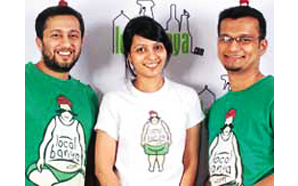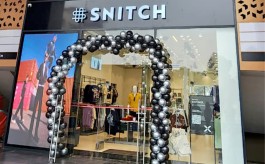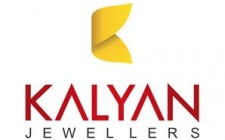Meet the new-age grocers
By Swaminathan Balasubramanian | Vjmedia Works | March 17, 2014
They come from diverse backgrounds but are unified in their pursuit of your grocery bills
 Sumat Chopra, 30, honed his trading skills on the sprawling campuses of Carnegie Mellon and Harvard universities in the US. The stores on these campuses were pricey and those outside very far away. This presented Chopra a business opportunity and he set up Egoods, an e-commerce website that partnered with Walmart and Costcos. While Chopra received orders from students, the retailers delivered the goods to them.
Sumat Chopra, 30, honed his trading skills on the sprawling campuses of Carnegie Mellon and Harvard universities in the US. The stores on these campuses were pricey and those outside very far away. This presented Chopra a business opportunity and he set up Egoods, an e-commerce website that partnered with Walmart and Costcos. While Chopra received orders from students, the retailers delivered the goods to them.Ekstop.com, which he founded in May 2012 with Shaurya Mehta, his MBA classmate at INSEAD, followed the same business model, except that the catchment area was now far beyond college campuses.
The same month, seeds were sown for yet another online grocery chain, Localbanya.com. But unlike Chopra and Mehta, the founders of Localbanya came from diverse backgrounds. While Chief Executive Officer Karan Mehrotra did everything from setting up a metal fabrication plant to food distribution network, Chief Technology Officer Amit Naik had a technology background and co-founder Rashi Choudhary worked in apparel retailing. The three put in Rs 70 lakh from their personal savings as seed fund to set up the venture.
For the founders of Bangalore-based Bigbasket.com, e-commerce wasn't a new territory. Brothers V S Sudhakar and V S Ramesh founded online venture Fabmart with Vipul Parekh and Hari Menon in 2000. This was later converted into physical stores, Fabmall, in 2003. Fabmall was acquired by Aditya Birla Retail in late 2006. Bigbasket went live five years later.
The reason why all of them came into e-grocery is simple: Spending on grocery and daily essentials is the largest and most consistent share of the wallet for any household. But it was still out of the ambit of online shopping and, therefore, meant a huge opportunity.
One of the key challenges, though, was that most goods were perishable. Vipul Parekh, chief financial officer & marketing head at Bigbasket, recalls how the team initially faced challenges on how to master the art of delivering fresh foods to households. It was a novelty at that time and the problem was initially resolved through temperature-controlled packs and then through refrigerators that worked on batteries of delivery vans. Ekstop's Chopra says a direct-buying model, inventory and working capital management are the mantras of growth for his portal, which he claims is growing at five-six times a month.
While Ekstop and Bigbasket buy directly from manufacturers or follow a marketplace model (where it acts as a facilitator between sellers and buyers), Localbanya buys from FMCG firms, wholesalers and others.
Ekstop follows a negative working capital cycle, where it buys 80 per cent of its expected sales in a particular credit period. To avoid stockouts, it buys every two-three days from manufacturers. So, if it has a 10-day payment period and sells six cartons of a product every day, it buys only 48 cartons, enough for eight days and helping it save on capital.
It is looking to give a new cut-off time for its buyers for same-day delivery. Earlier, buyers needed to order before 11 am to get same-day delivery. Now, it is giving time up to 5 pm for delivery to be made the same night.
Claims and counter-claims are the order of the day for e-grocery, which is still a nascent segment. Parekh says size and scale are the biggest differentiator for Bigbasket. "We have 10-15 times the scale of others and we sell 8,000 products, which is almost double others' size," he says. Ekstop's Chopra, on the other hand, says his firm offers 12,000 products in Mumbai and of that about 2,000 are on the marketplace model.
Prashant Agarwal, joint managing director of Wazir Advisors, a retail consultancy firm, says supply chain management is a key issue in the e-grocery business. "Shoppers' patience level is too low. They expect best services in the shortest possible time," he says.
Online ventures, obviously, understand that. So, while Bigbasket has an on-time delivery rate of 99.5 per cent, Ekstop is just a notch below at 98 per cent. Bigbasket also follows a no-questions-asked policy. If a buyer orders 10 items and gets only nine, the portal credits 50 per cent of value to the customer's account, besides billing for only nine items. Both Bigbasket and Ekstop heavily bank on technology to manage their inventory and logistics. Bigbasket's systems look at sales pattern, suppliers' fill rate (the rate at which items are replaced) and seasonality before deciding the minimum inventory required to reduce inventory holding costs. "The entire ordering is done by our systems," says Parekh. All its delivery vans are fitted with GPS global positioning system) to track the vehicles, the time required to reach customers and so on.
"If we get 1,000 orders in Mumbai, we decide which is the best route to send vehicles. Drivers get hand-held devices with apps to show payment modes, time needed to reach the location and so on," he adds.
Similarly, Ekstop uses advanced software to track inventory turnover, credit days, sales per day per product to analyse whether a product is working or not. "Based on that, we decide whether to hold a product or not," says Chopra.
LocalBanya follows 'just-in-time' delivery model, where it aggregates orders on its site and buys goods in the evening to deliver those next day.
However, there are others following a different model. Delhi-based Aaramshop.com, for example, ties up with local kirana shops and lists them online for free. Unlike other marketplace companies, it does not charge the sellers on a per-transaction basis. Instead, it charges brands for analytics, consumer knowledge and trends. It is present in India (3,000 retailers) and Pakistan (300 retailers). Like physical retailers, online portals are also looking to initially sacrifice profitability for scale. Bigbasket, currently present in Bangalore, Mumbai and Hyderabad, is looking to expand to two or three cities every quarter. It has already achieved break-even in Bangalore but missed the target date in Mumbai and Hyderabad. The site has an explanation for this. "We are building capacities. We built a 80,000-sq-ft warehouse in Bangalore and a 40,000-sq-ft one in Bangalore. If we hadn't made these investments, we would have broken even earlier," Parekh says.
The company is looking at sales of Rs 130 crore this financial year, an increase of over six times from those in 2012-13, and aims for Rs 350 crore in 2014-15.
Ekstop, on its part, is also undertaking frenetic expansion and looking to take its services to Panvel and Pune by the end of this year. It plans to be present in five-six cities by next year. The portal handles 400-450 orders a day. It currently deals in 12,000 products and is looking to increase the number to 100,000 by this monsoon. This will be done through a hybrid model, where the 85,000 non-essential products will be sold through marketplace and the rest over the portal. Depending on its launches in other cities, Ekstop hopes to break even by May this year.
LocalBanya.com aims to launch in a new city within the next quarter, followed by a bevy of new city launches over the rest of this financial year. It is expected to break even by July 2014 in Mumbai. However, Wazir Advisors' Agarwal says, as the entry of e-commerce portals is high, the mortality will also be high, given that the funding requirement for growth is huge. "Ultimately only three-five per cent of the portals will survive," he adds. Agarwal could be right. Companies like Mumbai-based ShopVeg had to shut shop due to funding crunch earlier. Bigbasket has raised funds from Karmvir Avant Group and the Springboard platform of the Times group's Brand Capital.
Investors like Raja Kumar, managing director of Ascent Capital, which invested $10 million in Bigbasket, believes there is a lot of opportunity for online supermarkets in the country, given that physical stores have challenges on the rental and inventory fronts. "Physical stores can keep 1,000-odd stock-keeping units, but online supermarkets like Bigbasket offer 10,000. Addressing the demand and fulfilling customer needs, though, is a challenge for e-grocers," says Kumar.
Advertisement








